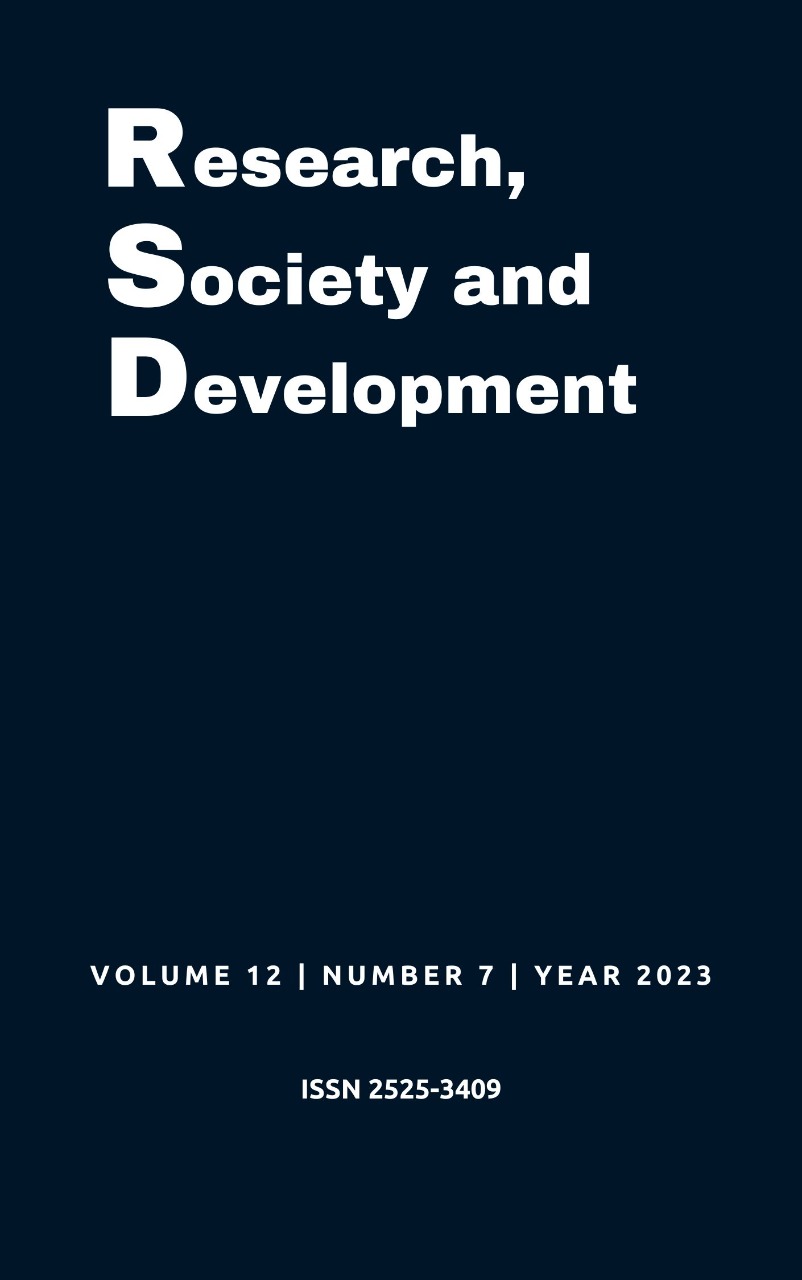Analysis of irrational use of medication during pregnancy and its potential risks: An integrative review
DOI:
https://doi.org/10.33448/rsd-v12i7.42379Keywords:
Pregnancy, Self-medication, Pharmaceutical care, Warning.Abstract
Pregnancy is a period in which women are prone to physiological, metabolic, and hematological changes, resulting in the practice of self-medication during this period. This is a concerning issue due to the potential risks it can pose to health, influenced in Brazil by outdated prescriptions, media, and recommendations from third parties. In the case of pregnant women, the concern is greater, as this practice can cause irreversible damage to the developing fetus, such as teratogenicity and drug withdrawal. The objective of this study was to discuss the danger of irrational use of medication during pregnancy and its potential risks to the health of the fetus and mother. This work is an integrative literature review, where the selection of studies was carried out in online databases: Scielo, Pubmed, and Capes, between the years 2017 to 2022. Following the inclusion and exclusion criteria, 11 articles were selected. It is worth concluding that it is the role of the pharmacist to promote educational campaigns, regularly update knowledge about medications and strategies to combat self-medication, establish greater control in dispensing, especially when it comes to pregnant women, recognizing the dangers and possible drug interactions, seeking, in short, to reduce cases of self-medication, morbidity and mortality, malformations, and occurrences during and after the gestational period, establishing progress in the quality of life for the mother and fetus, where it is recognized that the most sought-after medications by pregnant women are analgesics, antacids, vitamins, antiemetics, anti-inflammatories, and antibiotics.
References
Aguiar, M. I.. et al. (2020). Utilização de medicamentos na gravidez: Riscos e benefícios. Revista Cereus. 12(3),162-174.
Andrade, A. et al. (2017). Farmacocinética e mecanismos de teratogenicidade dos medicamentos na gestação: uma revisão da literatura.Revista Infarma Ciências Farmacêuticas.29(2),100-7.
ANVISA, Agência Nacional de Vigilância Sanitária. Legislação. ANVISA, Brasil (2020). Retirado de ‘‘https://www.gov.br/anvisa/pt-br’’.
Baralo, H. & Hayakawa, L. (2016). Automedicação entre gestantes assistidas em serviço público de saúde no município de Floresta, Paraná. Revista UNINGÁ, 25(3), 31-5.
Barrozo, M. B. (2018). Labeling na gravidez,no aleitamento,e na idade fértil:Comparação entre EMA, FDA e ANVISA. (Trabalho de Conclusão de Curso – Monografia). Universidade de Lisboa,Faculdade de Farmácia.Retirado de “Labelling na gravidez, no aleitamento e na idade fértil: comparação entre EMA, FDA e ANVISA” (ulisboa.pt)’’.
Braga, M. et al. (2020). Fatores preditivos para a automedicação durante a gestação. Revista Research,Society and Development.. 9(12).
Brasil, Ministério da Saúde. Cuidado farmacêutico na atenção básica: Serviços farmacêuticos na atenção básica à saúde. (1) 1-108.
CFF, Conselho Federal de Farmácia. Serviços farmacêuticos direcionados diretamente ao paciente, à família e à comunidade: contextualização e arcabouço conceitual. Brasil: [sn], 2017. 1-103 p. ‘‘ttps://www.cff.org.br/userfiles/Profar_Arcabouco_TELA_FINAL.p df’’.
Diniz, Z. et al. (2017). Utilização de medicamentos e plantas medicinais por gestantes atendidas na unidade de saúde da mulher em Alegre, ES, Brasil.Revista Infarma: Pharmaceutical Sciences. 29(4), 349-56.
Gouveia, A. D. P. (2020). Avaliação da automedicação em gestantes do município de CampinaGrande–PB. 71 fl. (Trabalho de Conclusão de Curso – Monografia). Centro de Educação e Saúde, UFCG. http://dspace.sti.ufcg.edu.br:8080/jspui/handle/riufcg/11863.
Guedes, D. et al (2020).A importância do cuidado farmacêutico em mulheres no período gestacional.Revista Research,Society and Development. 9(7).
Lakatos, E. et al. Fundamentos de Metodologia Científica. Saraiva.5.
Lemes, H. et al. (2019). Riscos da automedicação durante a gestação. Revista Research, Society and Development. 5(5).
Melo, A. et al. Prescrição e uso de medicamentos por gestantes usuárias do Sistema Único de Saúde. Semina: Ciências Biológicas e da Saúde, 41(2),367-76.
Oliveira, A. C. (2017). A importância da atenção farmacêutica na prevenção da automedicação dealopáticos em mulheres no período gestacional. Revista Especialize OnLine.1(14), 1-13.
Pompilio,C.(2020). Uso de medicamentos na gestação e as possíveis consequências ao feto.Revista J Health Sci Inst. 38(1),26-33.
Santos, S. et al.(2020). Automedicação em gestantes de alto risco de uma maternida de referência do estado do Ceará. Revista Curitiba. 3(2).
Santos, S.et al.(2018). Automedicação em Gestantes de Alto Risco:Foco em Atenção Farmacêutica. Revista JhealthSci. 12(7).
Silva, L. et al.(2019). Utilização de medicamentos por gestantes: uma revisão sistemática da literatura. Revista Aten.Saúde,SãoCaetano do Sul. 17(62),90-7.
Silva, E. et al (2022). A importância do acompanhamento farmacoterapêutico de pacientes gestantes: revisão. Brazilian Journal of Development, 8 (4), 28591–610.
Tacon, F. S. A. et al.(2017). Medicamentos e gravidez:Influência na morfologia fetal.Revista EducaçãoeSaúde. 5(2),105-11.
Downloads
Published
Issue
Section
License
Copyright (c) 2023 Kathlen Beatriz Meneses da Silva Leão; Leandra Vitória de Araújo Barros; Karícia Lima de Freitas Bonfim; Mayara Ladeira Coelho

This work is licensed under a Creative Commons Attribution 4.0 International License.
Authors who publish with this journal agree to the following terms:
1) Authors retain copyright and grant the journal right of first publication with the work simultaneously licensed under a Creative Commons Attribution License that allows others to share the work with an acknowledgement of the work's authorship and initial publication in this journal.
2) Authors are able to enter into separate, additional contractual arrangements for the non-exclusive distribution of the journal's published version of the work (e.g., post it to an institutional repository or publish it in a book), with an acknowledgement of its initial publication in this journal.
3) Authors are permitted and encouraged to post their work online (e.g., in institutional repositories or on their website) prior to and during the submission process, as it can lead to productive exchanges, as well as earlier and greater citation of published work.


